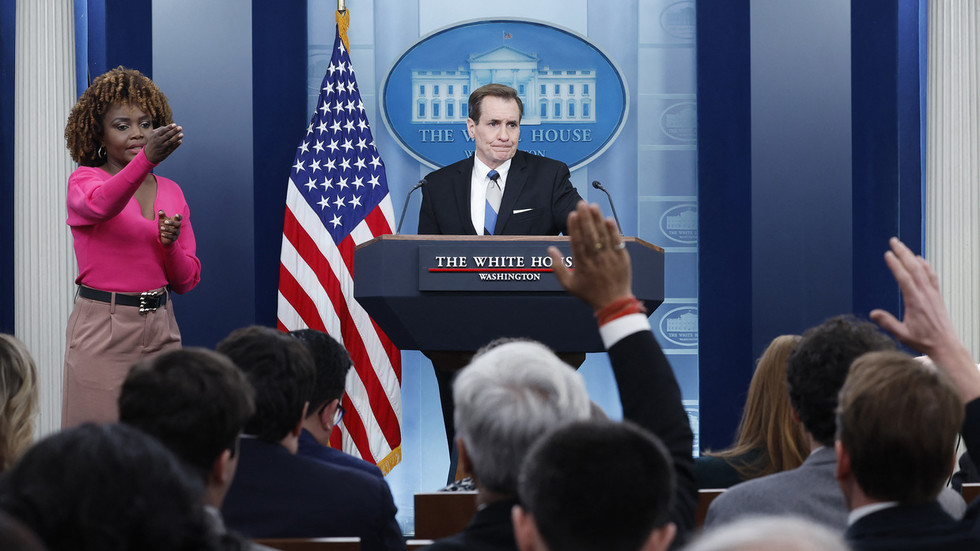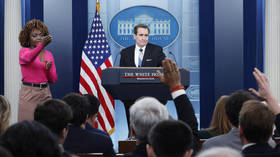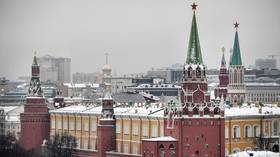
The explosive story is not a ploy to ram Ukraine aid through Congress, a senior spokesman has said

White House National Security Communications Advisor John Kirby speaks alongside White House Press Secretary Karine Jean-Pierre during a daily news briefing at the James S. Brady Press Briefing Room of the White House on February 15, 2024 in Washington, DC. © Anna Moneymaker / GETTY IMAGES NORTH AMERICA / Getty Images via AFP
The US intelligence community believes that Russia is developing a space-based anti-satellite weapon but there is no immediate threat, a senior White House official told journalists on Thursday.
The possible existence of such technology was raised on Wednesday by Mike Turner, the chairman of the House Intelligence Committee. He called for swift declassification to allow US lawmakers, the Biden administration, and American allies to “openly discuss the actions to respond to this threat.” He did not mention Russia.
Sources told US media that Turner was referring to some kind of a Russian nuclear device intended to target space satellites. Kremlin spokesman Dmitry Peskov said the White House was “trying, by hook or by crook, to push Congress to vote on a bill to approve funding” for Ukraine, which has gotten held up in the House.
White House National Security Communications Advisor John Kirby called Peskov’s suggestion “bollocks,” insisting that Washington’s concern was genuine. Biden “has directed a series of initial actions,” including briefings for congressional leaders, direct diplomatic engagement with Russia, and contacts with other nations. Kirby expressed regret that Turner had not followed protocol for downgrading the classification of information.

Read more
Russia has been developing anti-satellite capabilities for years, he claimed. The new intelligence is weeks old and has allowed the US intelligence community to “assess with a higher sense of confidence exactly how Russia continues to pursue it,” he added.
No actual deployment is expected anytime soon, according to Kirby. If Russia does what the US believes it intends to do, it would violate the Outer Space Treaty, he said.
The treaty bans the deployment of weapons of mass destruction in space and calls for its peaceful exploration. Both Russia and the US are signatories. Moscow has been arguing for years that the Pentagon’s increased use of space for military purposes violates the spirit of the 1967 agreement.
Kirby declined to state whether the purported Russian device is supposed to be “a nuclear weapon, a nuclear-powered weapon, or a nuclear-capable weapon,” as described in one of the reports.
READ MORE: US spies behind ‘Russiagate’ conspiracy – report
Some commentators in the US suggested that Turner’s move was intended to bolster his push to reauthorize Section 702 of the Foreign Intelligence Surveillance Act (FISA). It allows the US government to collect the digital communications of foreigners and has long served as a loophole for spying on American citizens. The controversial authority is set to expire in April in the absence of Congressional action.




